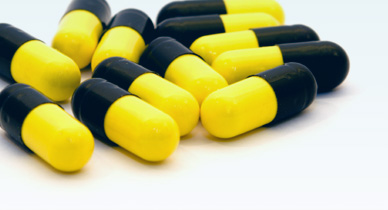
Show M3 The Way To Tàke The Antibiotics For Mac

When you take antibiotics, it can affect your menstrual cycle in a few different ways. Take a PROBIOTIC to bring your good bacteria back up due to the antibiotics destroying them. Glad my period finally showed! Good luck to all the worried or confused ladies out there. However, if she gets sick with a cold it’s hard to get her over it, antibiotics is only way always and she’s never been on any Probiotics as I have a hard time getting her to take or eat anything.
Mycobacterium avium complex (MAC) refers to infections caused by two types of bacteria: Mycobacterium avium and Mycobacterium intracellulare. MAC bacteria do not make most people sick. However, people with immune systems that do not work well (from HIV/AIDS or certain cancers for example) or people with lung disease (such as (COPD) or cystic fibrosis) are at the greatest risk for getting sick from MAC Infections. Elderly women are also at higher risk to get sick from MAC infections.
There are 3 types of MAC infections. • Pulmonary MAC infections - Affect the lungs and are the most common type. These mainly affect elderly women and people who already have lung disease. • Disseminated MAC infections - Have spread throughout the body. This type is usually seen in people with advanced AIDS. • MAC-associated lymphadenitis - Causes swelling of the lymph nodes (especially in the neck) and is the most common in young children. While the symptoms are different for each type of infection, general symptoms include fever, night sweats, weight loss, and fatigue.
MAC bacteria are found in water, soil, and dust. They infect people when the bacteria are inhaled or swallowed. Mac program to check for duplicate files. MAC bacteria are not usually spread from person to person. MAC infections are diagnosed by a combination of imaging scans and identifying the bacteria in cultures of cells from the infected area. Treatment for MAC infection depends on the type and may include antibiotics, antiviral medications, or surgery. Mycobacterium avium complex infections can cause various symptoms depending on the site of the infection.
For example, pulmonary MAC mainly affects the lungs; disseminated MAC affects the whole body; and MAC lymphadenitis causes. The symptoms of pulmonary MAC infection start slowly, get worse over time and may last for weeks to months. People with pulmonary MAC infections may experience cough, weight loss, fever,, and night sweats. Symptoms of disseminated MAC infection include: • Fever • Sweating • Weight loss • Fatigue • Diarrhea • Shortness of breath • Abdominal pain • Anemia People with disseminated MAC infection may also have symptoms associated with an infection of the breast tissue (mastitis); an infection of the (pyomyositis), of the skin or brain, and gastrointestinal problems. MAC lymphadenitis generally affects children.
Symptoms of MAC lymphadenitis usually only include swollen lymph nodes mainly on one side of the neck. Mycobacterium avium complex (MAC) infections are caused by two types of bacteria: Mycobacterium avium and Mycobacterium intracellulare. These bacteria are found in many places including water (fresh or salt), household dust, and soil. MAC bacteria get into the body when the bacteria are inhaled into the lungs or swallowed. Most people have MAC bacteria in their bodies and never get sick. MAC bacteria primarily cause illness in people who have poorly working immune systems or lung disease. Touching the same objects or having a close relationship with people who are sick from a MAC infection does not seem to increase the chance of getting sick.